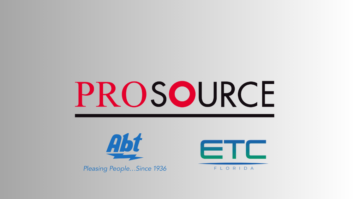Washington – The joint board of
directors of the National Association of Broadcasters (NAB) will vote this
afternoon on a series of legislative proposals that it will offer to the music
industry as part of a deal under which terrestrial radio stations will pay
higher royalties for broadcasting music.
The proposals, approved yesterday
by the NAB Radio Board, include a legislative mandate
to add FM radio tuners to portable electronics such as
portable media players (PMPs) and cellphones.
The legislative package is
designed to forestall music-industry-backed proposals circulating in Congress
to impose royalties that would be higher than those in NAB’s package of
proposals.
An FM tuner mandate, which NAB
said has already been endorsed by music-industry lobbying group
(Fairness in Radio
Starting Today), is designed to encourage the music
industry to lower its royalty-rate demands in
return for potential access to more listeners through portable devices.
The NAB Radio Board stressed that
its support for the package is conditioned on “all provisions” remaining part
of any legislation. The package, once approved by the Joint Board, would be
sent to
,
which was founded to get radio
stations to pay
royalties to musicians and
music companies for the songs they broadcast. By law, terrestrial radio stations have paid royalties only to songwriters
and music publishers. In contrast, new
broadcast media such as satellite radio and webcasters have had to pay
royalties to all of the groups.
The Radio Board said its
proposals are the “culmination
of more than a year of discussions and dialogue” among radio executives, the
NAB, key members of Congress and MusicFirst.
“NAB remains 100 percent
opposed to performance fee legislation pending in Congress,” said NAB
Radio Board Chair Caroline Beasley, CFO of Florida-based Beasley Broadcast
Group. “However, in a good faith effort to resolve this issue in the best
interests of both radio and the music industry, we have endorsed a solution
ensuring that broadcasters have a foothold in digital platforms of
tomorrow.”
Besides a tuner mandate, the package includes “provisions that
are essential to the future of free and local radio, and we’re hopeful that the
Muscifirst Coalition finds it in their best interest to say ‘yes’ to this
proposal,” Beasley said.
The radio mandate
includes “an acceptable phase-in period and inclusion of HD Radio chips when
economically feasible.” If a legislative mandate isn’t passed, then radio
broadcasters would agree to an initial performance-fee payment of 0.25 percent
of net industry revenue. Once penetration of radio-equipped mobile devices “reaches
and maintains a level of 75 percent of all mobile devices, broadcasters agree
to pay the full one percent terrestrial transmission performance fee,” the
board said in a statement.
For its part, CEA said in a letter today to the NAB that it will oppose a tuner mandate and doubts Congress will impose one. “We have yet to identify one member of Congress willing to support your attempt to impose old FM technology on new portable products.”
Other provisions include:
- eliminating the Copyright Royalty Board from setting
royalty rates for transmitting music on-air or over the Internet.
-
resolving a dispute with the music industry without
legislation to facilitate simulcasting of over-the-air radio commercials on the
Internet;
-
Musicfirst’s “acknowledgment and recognition of the
unparalleled promotional value of terrestrial radio airplay;”
-
simplified airplay
reporting requirements.
-
and, if a radio mandate is passed, reduced streaming
rates that broadcasters pay for simulcasts, webcasts and other non-terrestrial
transmissions of music through 2016. If a mandate isn’t passed, the streaming-rate
reduction would not take effect until 50 percent of mobile phones have radio
chips.












